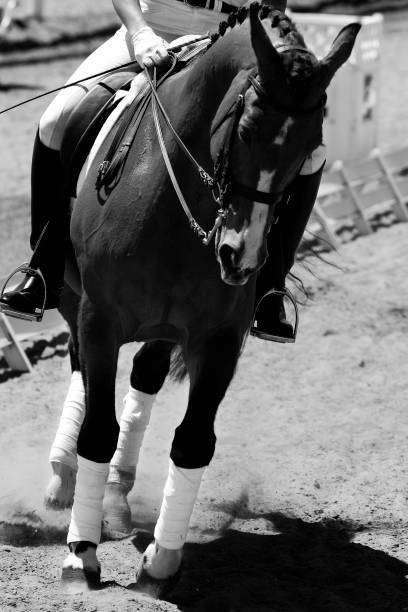Sometimes, when our horses behave badly, we get angry and punish them. It can be very difficult for horses to associate punishment with undesirable behavior. Horses think differently than we do. Training horses is not an efficient way to punish them. These are some of the most common punishments for horses, along with their reasons and possible consequences.
Hitting
It is not a good idea to hit a horse with your hands or any other object. It is not likely that the horse will understand that you are punishing them for undesirable behavior. It may become afraid or rebellious depending on its nature. You may create a more skilled and faster biter if your horse bites at you. You may miss an opportunity to teach your horse to move away from you if it moves sideways into you when grooming.
The Head is the Best Place to Be
Horses should not hit, slap, pinch or do anything that could cause pain or fear. Doing so could lead to a horse being afraid of you and a horse who isn’t comfortable around you. A head shy horse will make it difficult to halter, bridle, administer medications, doctor eyes, groom and clip. Your horse will become fearful if you cause it to turn its head. This can be a barrier to learning.
Yanking on the Reins
You should not yank or see-saw your horse’s reins while you ride. This can cause damage to its mouth and reduce trust in your rein aids. Pushing on the reins can lead to the horse learning to ignore the signals and developing a habit of head-tossing.
Pulling down on the Nose and Poll
No matter if your horse is wearing either a halter or a bridle, pulling down on the horse’s poll or nose in such a way as to make it throw its neck and head back encourages it to fear. It is also a way to make your horse shy. You can flick a whip or lead rope at your horse to make him/her throw his head back, and maybe even step back.
Solitary Confinement
It is not a good idea to tie a horse or keep it in a stall. Your horse will not think about the behavior that caused it to be confined. It doesn’t think that way. Your horse will most likely think that you are hungry and want to be outside with your pasture buddies.
Restrictive Tying
It is not a punishment or a training method to tie a horse in an unnatural way. It will only cause a horse to feel sore and can lead to permanent physical damage. This could lead to behavior problems. Similar behavior problems can be caused by tying a leg up or leaving the horse without a reason. Tying the horse’s head around to make it bend, or tying its head around to prevent it from moving freely, will cause behavioral and physical problems.
Chasing
If you’re not in a small area and have some control over speed and direction, it is unlikely that you can catch a horse. It is not possible to chastitate a horse through a large field in order to exhaust it. It might even end up teaching the horse how to run away.

